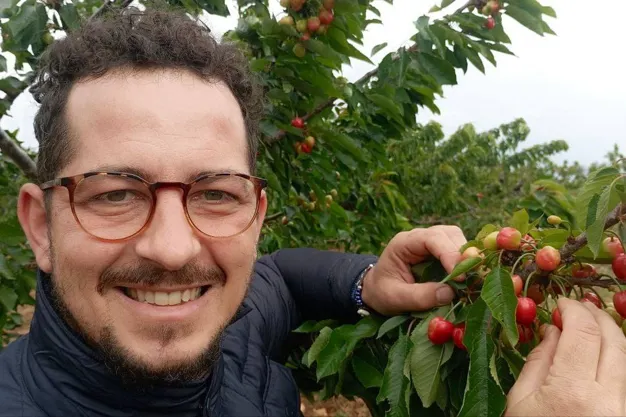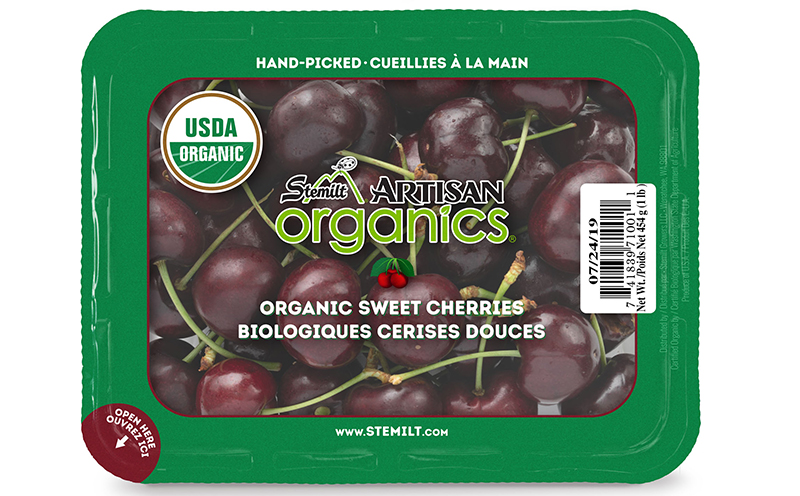August 5, 2025, was not just another day for the hills of Ciociaria. Ratafia Ciociara – a liqueur made from sour cherry infusion – was officially registered under the European system of Geographical Indications (GI). It’s the third such product in Lazio, and the first truly native among spirit drinks.
A technical name, yet one that hides a warm soul, a centuries-old story, and the intense flavor of a sealed pact marked with a raised glass.
The Ingredients
To create a treasure worthy of protection, exceptional ingredients are needed. And Ratafia Ciociara makes no compromises. The undisputed stars are sour cherries (or “visciole”) – those tart, almost wild fruits with deep color and intense flavor.
They’re not the sweet and gentle cherries we all know, but their more spirited and aromatic counterpart.
This fruity heart is joined by the soul of wine, and the official specification allows for two choices that tell the story of the region. On one hand, Cesanese del Piglio DOCG, the region’s beloved native red wine – soft and fruity, it embraces the sour cherries in perfect harmony.
On the other hand, Atina DOC Cabernet, an international grape variety that has found a second home here, lending the liqueur a more complex structure and broader appeal. The result is an elixir with an alcohol content ranging from 17% to 35%, ruby red in color, and with aromas of fruit, almond, and memories.
A Pact Sealed...
But is the excellence of the raw ingredients alone enough to earn such an important recognition? Not entirely. The product’s history and deep connection to the territory are also key.
To understand the path that led Ratafia Ciociara to this point, one must start with the name – delightfully vintage and melodious. Where does it come from? Imagine a world without emails or digital contracts. No cold electronic signature with a simple click.
The answer lies in history: "rata fiat," "the pact is made," "let it be ratified." This is the literal Latin translation of the name, opening the door to historical interpretation.
Ratafia was likely a regular presence at significant moments. It was the liquid seal that marked the conclusion of a deal, an agreement, or – more romantically – a marriage promise. From the notary’s table to the celebration feast, offering and drinking this ruby-red liqueur meant sealing a pact. A promise ratified with an infusion of sour cherries and fine wine.
The Bond with the Territory
The production rules are clear, starting with the name, also in terms of territorial authenticity: in order for a bottle to bear the label, the entire process – from infusion to bottling – must take place exclusively within the administrative borders of the Province of Frosinone. This is more than a guideline: it’s a guarantee of authenticity.
Ratafia was born in the fields – after all, the “ciocia” was the traditional footwear of the region’s shepherds and farmers – and moved into homes, with each family almost certainly having its own recipe, both then and now.
This is the story that has now received official recognition. And that is ready – as already shown by the work of small artisanal producers – to be enjoyed even beyond its homeland.
But when can it be tasted? What’s its ritual place in the day? As its history suggests, Ratafia Ciociara is quite versatile. Served after a meal, at room temperature or slightly chilled, it’s a superb digestif that refreshes the palate.
On the Plate or at the Bar
But it’s in pairings that Ratafia truly shines. Try it with traditional dry pastries, like wine biscuits or “tozzetti” (almond biscotti): it’s a perfect match.
The most striking pairing, however, is with dark chocolate – where the bitterness of cocoa and the fruity notes of Ratafia dance in perfect harmony. For the more adventurous, pairing it with aged cheese offers a surprising experience.
And as an ingredient, in the kitchen or at the bar? It never disappoints. Its unique aromatic profile, striking a perfect balance between the wine’s sweetness and the sour cherries’ fruity acidity, makes it a true wildcard.
In pastry-making, it can be used to soak sponge cake – especially for desserts with cream and red fruit – or added to a dark chocolate mousse. The long-standing success of the cherry-chocolate pairing is well illustrated by the Black Forest cake, one of the most beloved classic desserts.
Its slightly sweet-and-sour flavor can also delight meat lovers, particularly when used in sauces or pure reductions. With game or wild boar, it creates remarkable harmonies.
The world of mixology has already been rediscovering traditional liqueurs. Walnut liqueurs and intense herbal bitters have paved the way, and Ratafia is following suit. Its organoleptic traits make it ideal for any sour cocktail, or for a bold and original twist on the classic Negroni by replacing Vermouth with Ratafia.
For those less skilled with shakers and strainers, it can be mixed with Prosecco and a splash of soda for a more local take on the Spritz, or even with tonic – 2 parts liqueur and top up with tonic – for a refreshing aperitif.
Whatever the intended use, the official recognition marks the closing of a circle. A seal. And the beginning of a new story. The Geographical Indication is far more than a label: it is a shield that protects Ratafia Ciociara from imitations, and a passport enabling it to travel the world and share its story.
It’s a well-deserved tribute to the producers who have preserved this tradition, and a valuable heritage for the entire region, which now carries the responsibility to tell and promote it in the right way.
Image source: Beverfood
Lara De Luna
La Repubblica
Italian Berry – All rights reserved










